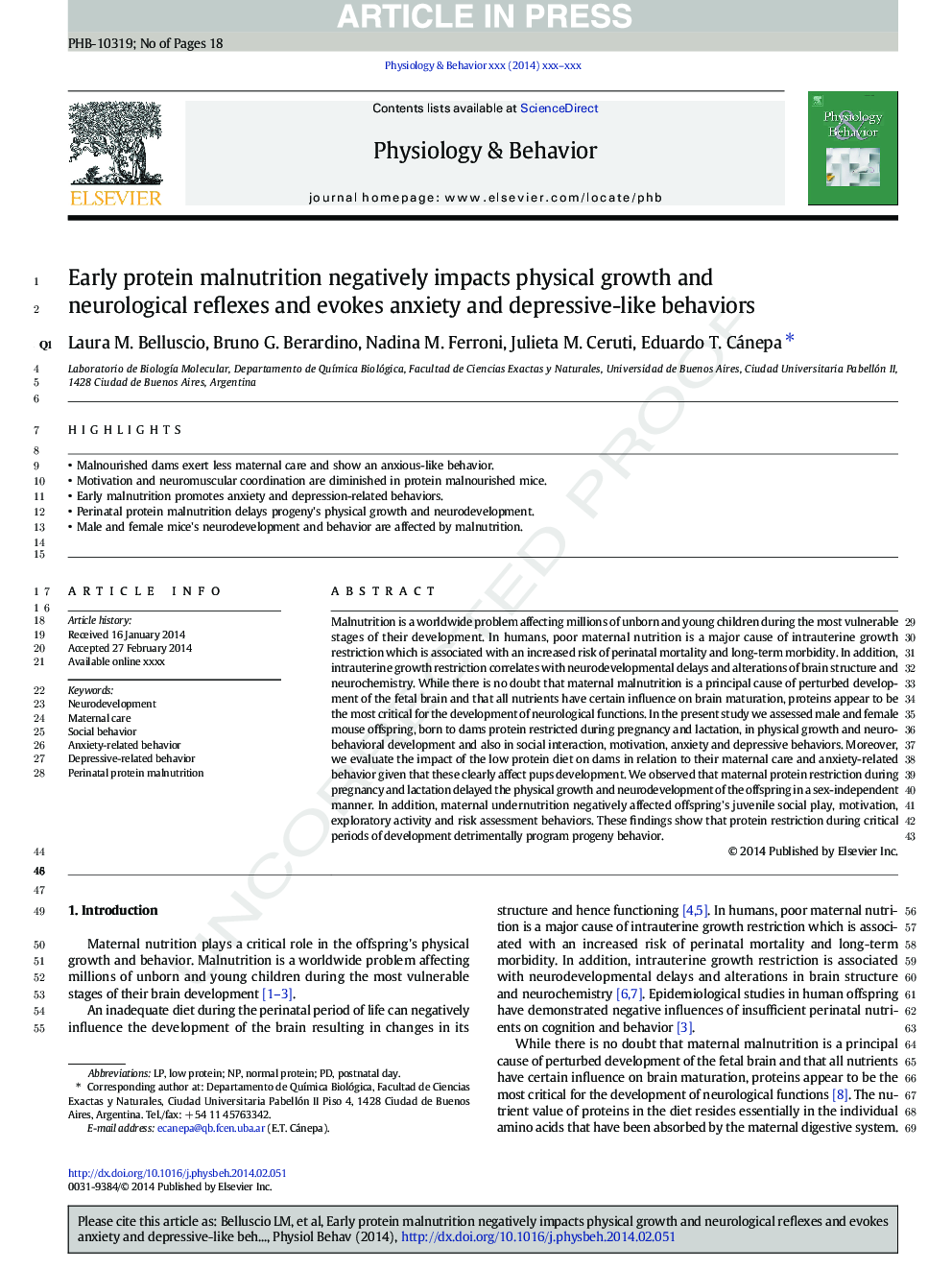| Article ID | Journal | Published Year | Pages | File Type |
|---|---|---|---|---|
| 5924312 | Physiology & Behavior | 2014 | 18 Pages |
Abstract
Malnutrition is a worldwide problem affecting millions of unborn and young children during the most vulnerable stages of their development. In humans, poor maternal nutrition is a major cause of intrauterine growth restriction which is associated with an increased risk of perinatal mortality and long-term morbidity. In addition, intrauterine growth restriction correlates with neurodevelopmental delays and alterations of brain structure and neurochemistry. While there is no doubt that maternal malnutrition is a principal cause of perturbed development of the fetal brain and that all nutrients have certain influence on brain maturation, proteins appear to be the most critical for the development of neurological functions. In the present study we assessed male and female mouse offspring, born to dams protein restricted during pregnancy and lactation, in physical growth and neurobehavioral development and also in social interaction, motivation, anxiety and depressive behaviors. Moreover, we evaluate the impact of the low protein diet on dams in relation to their maternal care and anxiety-related behavior given that these clearly affect pups development. We observed that maternal protein restriction during pregnancy and lactation delayed the physical growth and neurodevelopment of the offspring in a sex-independent manner. In addition, maternal undernutrition negatively affected offspring's juvenile social play, motivation, exploratory activity and risk assessment behaviors. These findings show that protein restriction during critical periods of development detrimentally program progeny behavior.
Keywords
Related Topics
Life Sciences
Biochemistry, Genetics and Molecular Biology
Physiology
Authors
Laura M. Belluscio, Bruno G. Berardino, Nadina M. Ferroni, Julieta M. Ceruti, Eduardo T. Cánepa,
